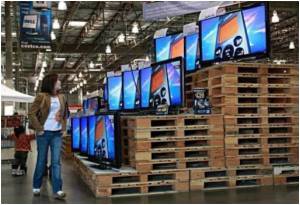Scientists are concerned that recycling of electronic waste from computers, cell phones and other goods might be creating significant health and environmental hazards.

"The most immediate problem is the health of the workers and the people who live in the city," said Bernd R.T. Simoneit at Oregon State University.
The study involved collecting samples during four working days, when workers were removing the electronic components by heating the circuit boards over grills on stoves burning coal briquettes.
The workshop had 24 stoves along three walls, and an estimated five tons of circuit boards stacked along the fourth wall for processing. Workers would use the grills to melt the solder, and then remove reusable portions of the circuitry.
The researchers found that through this "roasting process," numerous organic chemicals, heavy metals, flame retardants and persistent organic pollutants (or POPs) were emitted into the air via the smoke. The chemical signature created by this process of roasting or toasting circuit boards "is unmistakable."
"Some of these chemical compounds may be carcinogens; others may be just as harmful because they can act as 'environmental disruptors' and may affect body processes from reproduction to endocrine function," Simoneit said.
Advertisement
Source-ANI









